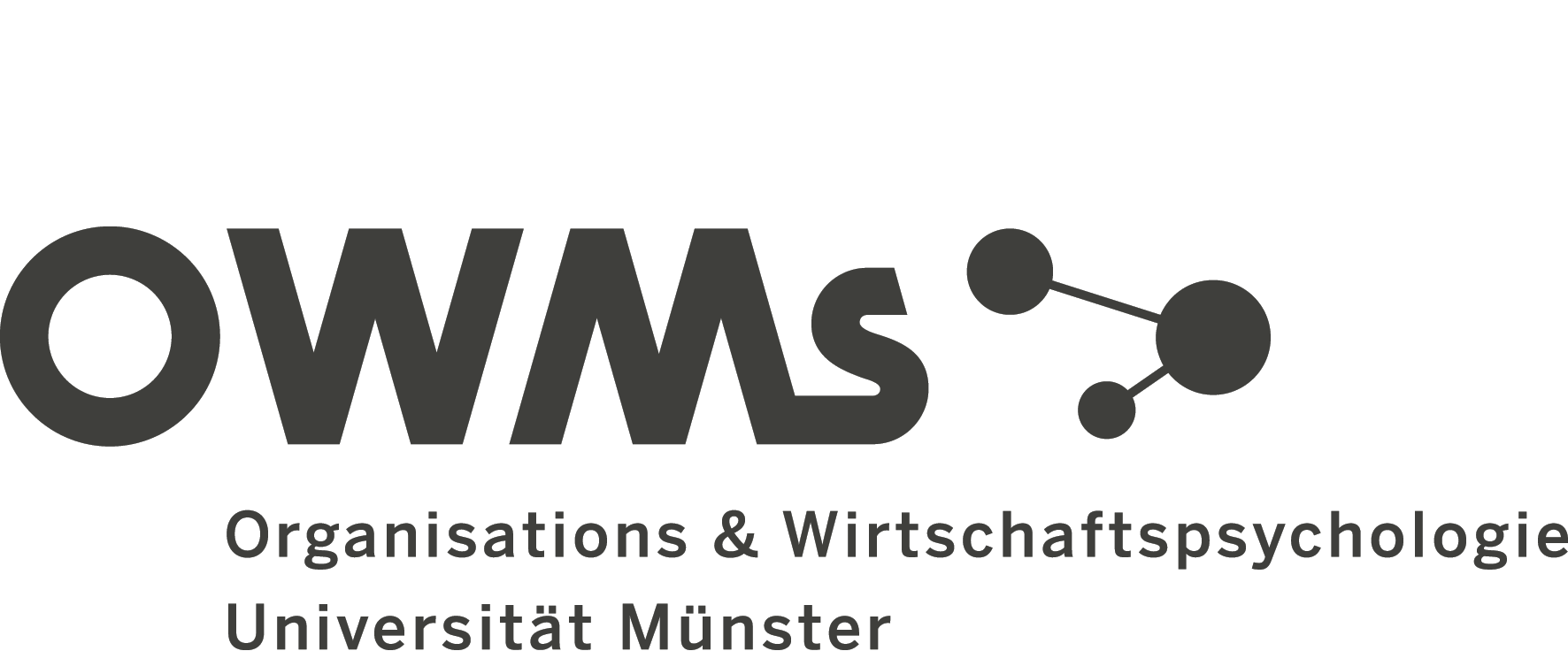
Electronic Human Resource Management (E-HR) and Artificial Intelligence (AI)
Due to globalization many companies aspire to adapt and widen their HR processes. This leads to a growing necessity of new media in the area of HR management. Besides the possibility of applicants' online assessment, which has already been used more frequently for a while, solutions concerning other aspects of eAssessment have been developed (e.g. platforms for time shifted, web-based job interviews) by now. The growing interest for the usage of new media goes beyond assessments, as for instance it can also be applied in the area of recruiting. The future challenges concerning this topic are reflected in the research questions we deal with:
- Which innovative methods concerning employee attraction, selection and development are provided by new media?
- How can disadvantages stemming from the application of new media (e.g. uncontrolled diagnostic setting in case of eAssessment) be compensated?
- How can we shape HR instruments, in order to meet the challenge of an expanding globalization (e.g. cultural fairness)?
Publications
Hertel, G., Fisher, S. L., & Van Fossen, J. (2025). Motivated trust in AI: An integrative model considering multiple stakeholder views in HRM. In B. Murray, J. H. Dulebohn, D. L. Stone, & K. M. Lukaszewski (Eds.). Research in Human Resource Management: The Future of Human Resource Management (pp. 123 -161). Information Age Publishing. https://www.emerald.com/books/edited-volume/20827/chapter/106926754/Motivated-Trust-in-AIAn-Integrative-Model
------------
Höddinghaus, M., Nohe, C., & Hertel, G. (online first 2023): Leadership in virtual work settings: what we know, what we do not know, and what we need to do. European Journal of Work and Organizational Psychology. https://doi.org/10.1080/1359432X.2023.2250079
-----------
Eisbach, S., Mai, O., Hertel, G. (2024). Combining theoretical modelling and machine learning approaches: The case of teamwork effects on individual effort expenditure, New Ideas in Psychology, 73, 101077, https://doi.org/10.1016/j.newideapsych.2024.101077
-----------
Eisbach, S., Langer, M., Hertel, G. (2023). Optimizing human-AI collaboration: Effects of motivation and accuracy information in AI-supported decision-making. Computers in Human Behavior: Artificial Humans, 1(2), 100015. https://doi.org/10.1016/j.chbah.2023.100015.
-----------
Eisbach, S., Heghmanns, M. & Hertel, G. (2022). Künstliche Intelligenz im Strafverfahren am Beispiel von Kriminalprognosen. Zeitschrift für Internationale Strafrechtswissenschaft, 7-8, 489-496.
------------
Höddinghaus, M. & Hertel, G. (2021). Trust and Leadership: Implications of Digitization. In Blöbaum, B. (Ed.), Trust and Communication. Findings and Implications of Trust Research (pp. 185-206). Springer Nature. https://link.springer.com/chapter/10.1007%2F978-3-030-72945-5_9
------------
Höddinghaus, M., Sondern, D. & Hertel, G. (2021). The automation of leadership functions: Would people trust decision algorithms? Computers in Human Behavior, 116, 106635. https://doi.org/10.1016/j.chb.2020.106635
------------
Hertel, G., Meeßen, S. M., & Höddinghaus, M. (2020). Trust in the Context of e-HRM. In Bondarouk, T. & Fisher, S. (Eds.), Encyclopedia of Electronic HRM (pp. 76–81). Berlin: De Gruyter Oldenbourg. https://doi.org/10.1515/9783110633702-012. [Link]
------------
Hertel, G., Stone, D., Johnson, R., & Passmore, J. (2017). The Psychology of the Internet at Work. In G. Hertel, D. Stone, R. Johnson, & J. Passmore (Eds.), The Wiley Blackwell Handbook of the Psychology of the Internet at Work (p.1-18). Chichester: Wiley-Blackwell. [Link] more
------------
Hertel, G. & Lauer, L. (2012). Führung auf Distanz und E-Leadership – die Zukunft der Führung? In Grote, S. (Hrsg.), Die Zukunft der Führung (S. 103-118). Berlin: Springer.
------------
Gnambs, T., Batinic, B. & Hertel, G. (2011). Internetbasierte psychologische Diagnostik. In L.F. Hornke & M. Amelang (Eds.), Enzyklopädie der Psychologie, Psychologische Diagnostik 3, Leistungs-, Intelligenz- und Verhaltensdiagnostik (S. 447-498). Göttingen: Hogrefe.
------------
Konradt, U., Syperek, S. & Hertel, G. (2011). Testing on the Internet: Faking in a web-based self-administered personality measure. Journal of Business and Media Psychology, 1, 1-10.
------------
Hertel, G. & Schroer, J. (2008). E-HRM: Personalarbeit mit netzbasierten Medien. In B. Batinic (Hrsg.), Lehrbuch Medienpsychologie (S. 449-476). Heidelberg: Springer Verlag.
------------
Hertel, G., Schroer, J., Batinic, B. & Naumann, S. (2008). Do shy persons prefer to send e-mail? Personality effects on communication media preferences in threatening and non-threatening situations. Social Psychology, 39, 231-243.
------------
Hertel, G. & Konradt, U. (Hrsg.) (2004). Human Ressource Management im Inter- und Intranet. Göttingen: Hogrefe.
------------
Hertel, G., Konradt, U. & Orlikowski, B. (2003). Ziele und Strategien von E-Assessment aus Sicht der psychologischen Personalauswahl. In U. Konradt & W. Sarges (Hrsg.), E-Recruitment und E-Assessment. Rekrutierung, Auswahl und Beurteilung von Personal im Inter- und Intranet (S. 37-54). Göttingen: Hogrefe.
------------
Konradt, U., Hertel, G. & Joder, K. (2003). Web-based assessment of call center agents: Development and validation of a computerized instrument. International Journal of Selection and Assessment, 11, 184-193.
------------
Hertel, G., Naumann, S., Konradt, U., & Batinic, B. (2002). Person assessment via Internet: Comparing online and paper-and-pencil questionnaires. In B. Batinic, U. Reips & M. Bosnjak (Hrsg.), Online Social Sciences (pp. 115-133). Berlin: Hogrefe.

